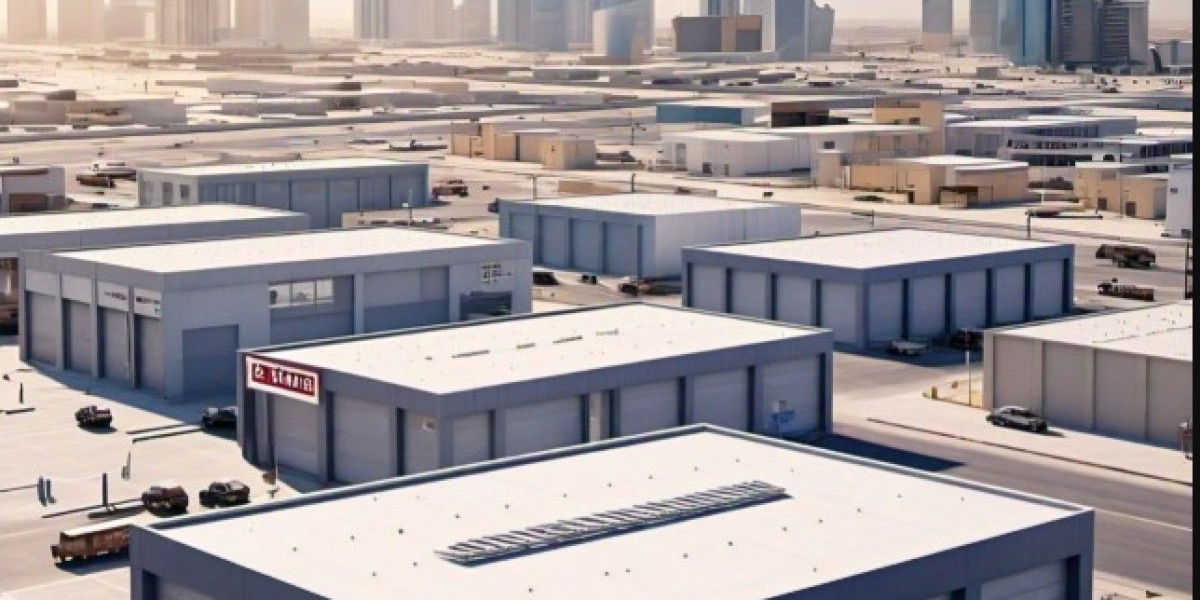Qatar’s strategic location and rapidly growing economy have positioned it as a global hub for trade, commerce, and logistics. The demand for efficient logistics solutions has surged in recent years, fueled by Qatar’s ambitious infrastructure projects, thriving e-commerce sector, and its role as a critical player in international trade routes. At the heart of this thriving industry lies the backbone of supply chain management—warehouses.
Qatar’s warehouses are designed to meet the dynamic needs of logistics businesses, offering advanced facilities, strategic locations, and unparalleled efficiency. This article explores what makes luxury warehouses for sale in Qatar ideal for logistics operations and how they contribute to the country’s flourishing economy.
1. Strategic Location: Gateway to Global Markets
Qatar’s geographical position in the Arabian Gulf makes it a strategic gateway for connecting Asia, Europe, and Africa. Its proximity to major shipping lanes and trade routes enables efficient movement of goods to and from the country.
Warehouses in Qatar are often located near critical logistics infrastructure such as Hamad Port, one of the largest deep-water seaports in the region, and Hamad International Airport, which handles a significant volume of cargo traffic. This strategic positioning reduces transit times, minimizes transportation costs, and ensures seamless connectivity for global trade.
2. Advanced Infrastructure and Modern Facilities
Warehouses in Qatar boast state-of-the-art infrastructure designed to support modern logistics needs. These facilities are equipped with:
Climate Control: Many warehouses feature temperature-controlled environments to store sensitive goods like pharmaceuticals, food products, and electronics.
Automated Systems: Advanced warehouse management systems (WMS) streamline inventory tracking, order fulfillment, and workflow management, improving efficiency and accuracy.
High Ceilings and Large Storage Capacity: Warehouses are designed with spacious layouts to accommodate bulk storage and facilitate easy movement of goods.
Such advanced facilities make Qatar’s warehouses ideal for industries requiring precision, efficiency, and scalability.
3. Proximity to Free Zones and Economic Hubs
Qatar’s government has established several free zones and economic hubs, such as Qatar Free Zones Authority (QFZA) and Manateq, which are home to numerous logistics and supply chain companies. Warehouses located within or near these zones benefit from:
Tax Exemptions: Businesses operating in these zones enjoy tax incentives, including exemptions on corporate income tax and customs duties.
Ease of Business Setup: Streamlined registration processes and supportive government policies encourage businesses to establish logistics operations in Qatar.
Integrated Supply Chains: Proximity to manufacturing plants, ports, and distribution centers facilitates smooth supply chain operations.
These free zones make Qatar an attractive destination for logistics companies looking to optimize their warehousing and distribution networks.
4. Technological Integration for Efficiency
Qatar’s warehouses are increasingly adopting cutting-edge technology to enhance operational efficiency. Features such as:
Robotics: Automated guided vehicles (AGVs) and robotic arms are used for picking, packing, and sorting goods.
IoT and Sensors: Real-time tracking and monitoring of inventory ensure better stock management and reduce wastage.
Blockchain: Secure and transparent data sharing between stakeholders minimizes errors and improves accountability in the supply chain.
This technological integration positions Qatar as a leader in smart logistics and ensures that its warehouses remain competitive in the global market.
5. Support for E-Commerce Growth
The e-commerce industry in Qatar has experienced significant growth, driven by changing consumer preferences and digital transformation. Warehouses play a crucial role in supporting this growth by providing:
Fulfillment Centers: Dedicated spaces for storing, packing, and shipping online orders.
Last-Mile Logistics Support: Strategic locations that facilitate efficient delivery to customers.
Reverse Logistics: Systems for managing returns and exchanges seamlessly.
As e-commerce continues to expand, warehouses in Qatar are adapting to meet the demands of faster deliveries, accurate order fulfillment, and better customer experiences.
6. Flexibility for Diverse Industries
Warehouses in Qatar cater to a wide range of industries, making them versatile assets for logistics operations. Key industries that benefit include:
Retail and FMCG: Storage and distribution of consumer goods with high turnover rates.
Construction: Stockpiling raw materials like steel, cement, and equipment.
Healthcare: Safeguarding medical supplies and pharmaceutical products in climate-controlled environments.
Oil and Gas: Managing inventory for machinery, tools, and spare parts critical to Qatar’s energy sector.
This adaptability ensures that warehouses in Qatar are well-equipped to meet the unique requirements of various sectors.
7. Government Support and Investment
Qatar’s government has made significant investments in logistics infrastructure to position the country as a global trade hub. Initiatives such as the Qatar National Vision 2030 emphasize the development of world-class supply chain facilities.
Additionally, government-backed programs offer support to logistics businesses through subsidies, training, and streamlined regulations. These measures create a conducive environment for logistics companies to thrive, making warehouses a cornerstone of the country’s supply chain strategy.
8. Sustainability and Green Initiatives
As global businesses prioritize sustainability, warehouses in Qatar are adopting eco-friendly practices. These include:
Solar-Powered Facilities: Reducing reliance on non-renewable energy sources.
Energy-Efficient Designs: Incorporating insulation, LED lighting, and energy-saving HVAC systems.
Waste Management Systems: Minimizing environmental impact by managing waste effectively.
These initiatives align with Qatar’s commitment to environmental sustainability and attract businesses seeking eco-conscious logistics solutions.
9. Robust Security and Safety Measures
Warehouses in Qatar prioritize safety and security, ensuring the protection of goods and personnel. Common features include:
24/7 Surveillance: CCTV cameras and security personnel to monitor facilities.
Fire Safety Systems: Advanced fire detection and suppression systems to prevent loss or damage.
Access Control: Restricted access ensures that only authorized personnel can enter the premises.
Such measures give businesses peace of mind, knowing that their inventory is safeguarded at all times.
Conclusion
Warehouses in Qatar are the cornerstone of the country’s thriving logistics industry, offering a perfect blend of strategic location, modern infrastructure, and advanced technology. Their ability to cater to diverse industries, support e-commerce growth, and align with sustainability goals makes them an indispensable part of Qatar’s supply chain ecosystem.








